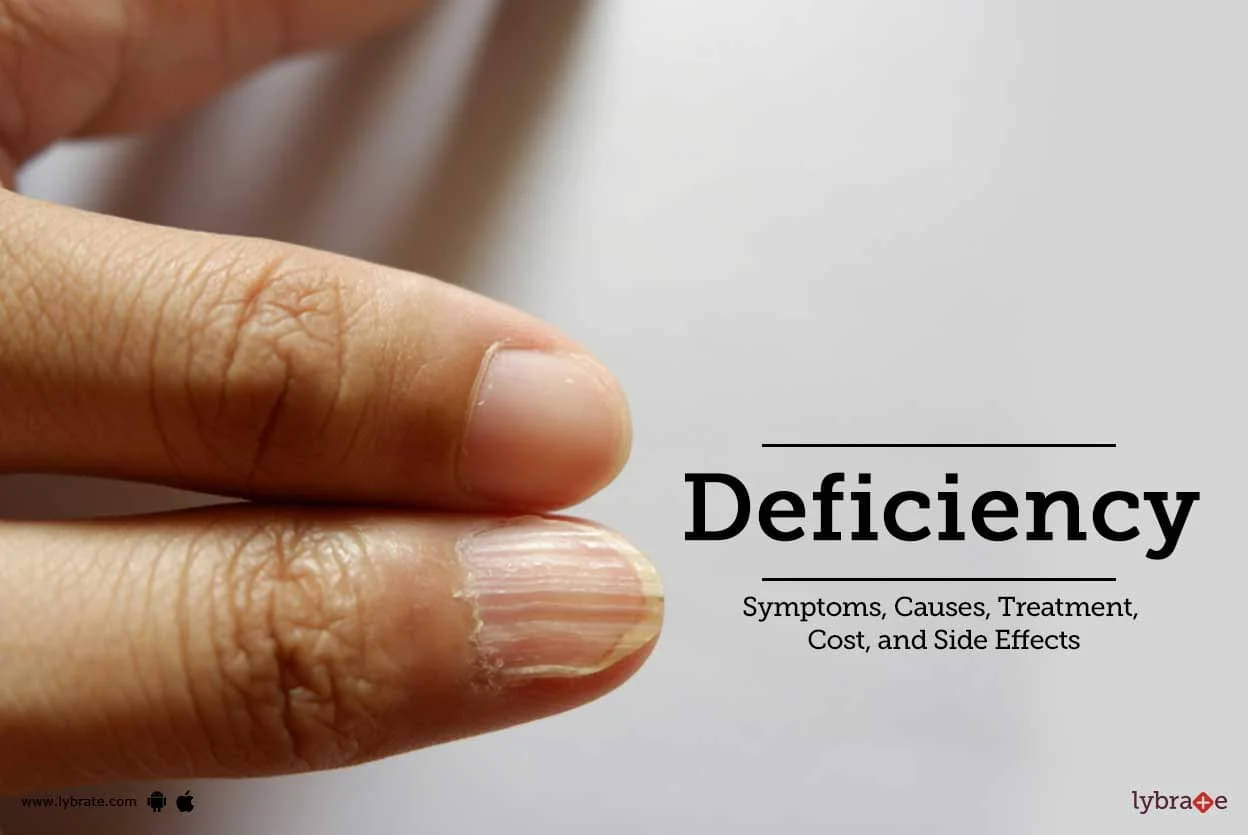Nutrient Deficiency: Treatment, Procedure, Cost and Side Effects
Last Updated: Jul 01, 2023
What is the Nutrient Deficiency?
Your body needs a combination of various nutrients in order to function at an optimum level. Each nutrient affects the way different systems and organs within the body work, and therefore a deficiency in any of the vital nutrients can cause major health problems and is something that should be addressed as soon as possible. There are various treatments for deficiencies and while some are common, others depend largely on the specific nutrient that is lacking in the body.
More often than not, nutrient deficiencies are caused by an imbalance in the diet. Therefore the main line of treatment here is to address the imbalance and add supplements to the diet along with specific food items as well to address the problem. However, in some cases nutrient deficiencies are caused due to the body’s inability to absorb that nutrient from the food. In this case, certain medications are prescribed. If the medicines do not work, surgery may also be required to fix the problem.
In some cases, nutrient deficiencies can also be inherited. Here, providing nutrient supplements is the main line of treatment as well as exploring the reasons behind why the deficiency has occurred in the first place.
How is the treatment done?
Nutrient deficiencies are diagnosed with the help of a blood profile or a blood tests. Blood tests show the exact amount of different nutrients and vital enzymes that are present in the body and comparing the numbers with the healthy range that should ideally be there can let doctors know whether or not there is a deficiency in the body. Once the deficiency is identified and the symptoms are mapped to the same, the treatment can be started.
Most treatment plans for nutrient deficiencies focus on two main areas. The first is to bring the count of the nutrient in the body back up to the healthy amount. The second is to eliminate the symptoms that have come with the deficiency (for example, deficiency in Vitamin C can cause scurvy, deficiency in Vitamin D can cause pain in the joints, etc). Therefore, along with being referred to a dietician, you may also have to see a specialist you can eradicate the symptoms (such as a dermatologist for scurvy, an orthopaedic doctor for your bones, etc). The dietician will determine the food groups that you need to add to your diet while also letting you know about the nutritional supplements that you should be taking in order to improve your health. This can decrease the deficiency in your system and bring your health back to normal.
If the deficiency is caused by a condition that is hampering your body’s ability to absorb nutrients, then the treatment will focus on treating that condition, along with providing you with the supplements needed to bring the number up.
Who is eligible for the treatment? (When is the treatment done?)
Whether you have been experiencing any symptoms or not, it is always advisable to get a check-up and see the levels of nutrients in your body. On the basis of that, you can seek treatment.
Who is not eligible for the treatment?
If you are suffering from a chronic condition that is hampering the nutrients in your body, then simply seeking treatment for nutrient deficiency will not help you. You will have to treat the underlying condition to bring your nutrient count up to normal.
Are there any side effects?
Since most treatments involve changing your diet and adding nutritional supplements to your daily regime, the side effects you may experience will be focussed on your digestive system. You may experience constipation, diarrhoea, weight gain, weight loss, and changes in your appetite. You may also notice changes in your skin, depending on the supplements you are taking.
What are the post-treatment guidelines?
You will have to maintain a healthy and balanced diet for the rest of your life to ensure you do not suffer from a nutritional deficiency again.
How long does it take to recover?
It can take a month or two to improve the nutrient count in your body.
What is the price of the treatment in India?
The price can range from Rs. 100 – Rs. 300, depending on the supplements you are taking. Speaking to a dietician can range from Rs. 1,000 – Rs. 3,000 per session, depending on who you are seeing and where you are seeing them.
Are the results of the treatment permanent?
If you follow all the post treatment guidelines properly and do not deviate from your diet, the results of the treatment can be permanent.
What are the alternatives to the treatment?
There are no alternatives to the treatment. If you are suffering from a nutrient deficiency, you should see a doctor to understand how you can improve your health.
References
- Nutrient Deficiency Diseases- The Gale Encyclopedia of Science [Internet]. encyclopedia.com 2008 [Cited 20 August 2019]. Available from:
- Nutrient deficiencies- The Royal Horticultural Society [Internet]. rhs.org.uk 2019 [Cited 20 August 2019]. Available from:
- Nutrient Deficiencies- Missouri Botanical Garden [Internet]. missouribotanicalgarden.org [Cited 20 August 2019]. Available from:
Table of content
15+ Years of Surgical Experience
All Insurances Accepted
EMI Facility Available at 0% Rate
Find General Physician near me
Ask a free question
Get FREE multiple opinions from Doctors


